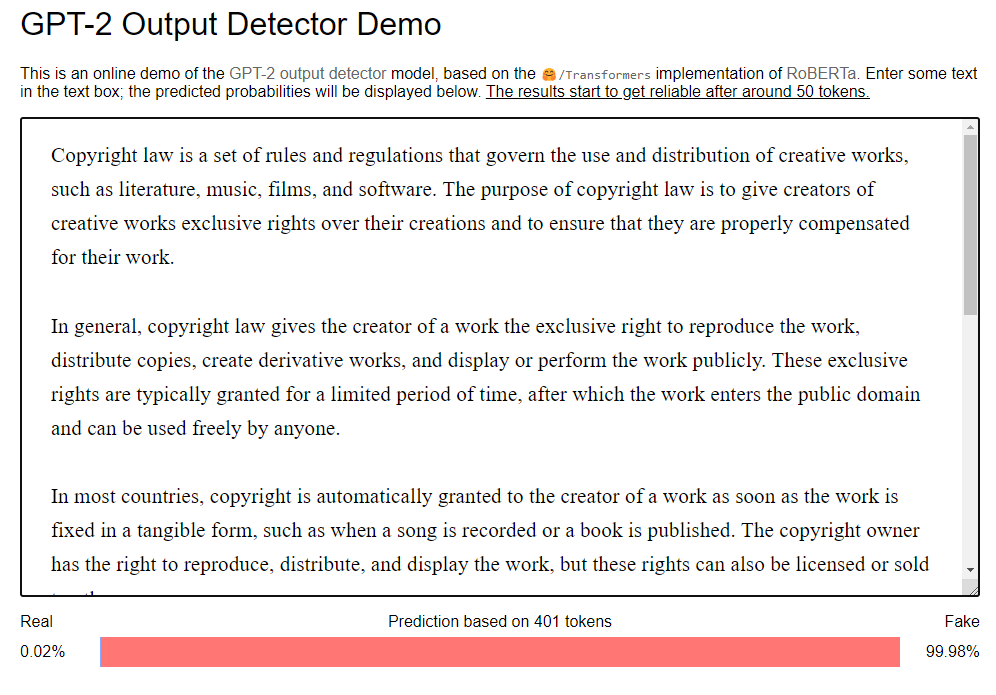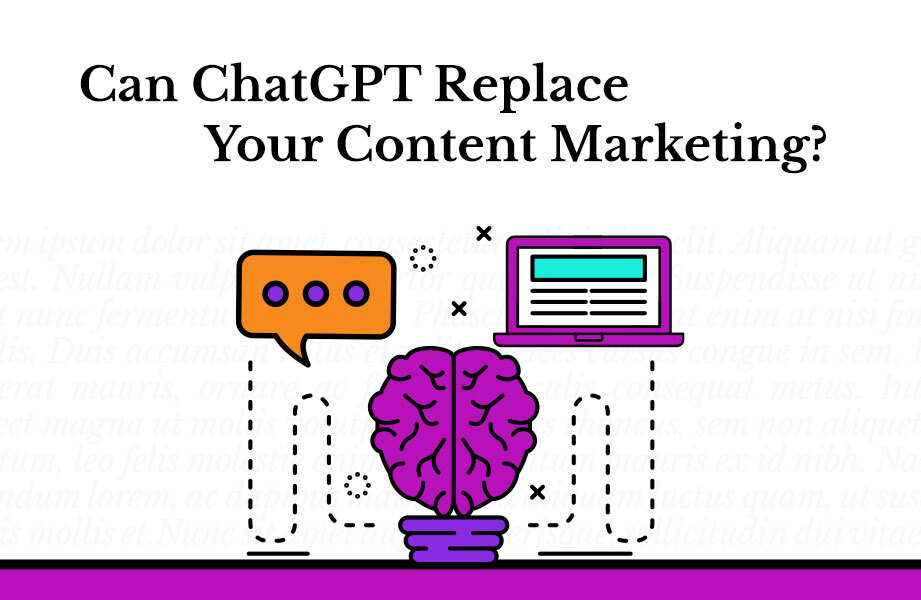At Phantom Copy, we’ve long been against the use of AI-generated content. We’ve built our network of Phantoms on the idea that human-written content will always be vital to any successful content marketing. However, we will be the first to admit that ChatGPT—at least at first glance—provides a far superior product to other AI-generated content options. Can ChatGPT replace your content marketing? We still firmly believe that the answer here is no, and we aren’t the only ones.
5 Reasons You Should Not Use ChatGPT on Your Website
If you need a reason not to use ChatGPT for your content marketing, we have 5 of them, and they are quite big. In fact, below we don’t even explore the potential for grammar and spelling errors and the amount of time you don’t actually save by using one of these tools. All of which we did explore in a previous post about other AI writing tools.
1. You Can’t Copyright AI-Generated Content

The U.S. Copyright Office is still new to all of this AI-generated business. Recently, they granted copyright to a comic book that was openly created by AI. However, just a few months later, they are working to rescind that copyright.
In an official statement, the U.S. Copyright Office declared that “copyrighted works must be created by humans to gain official copyright protection.” In reality, given the past record of the Copyright Office, it’s hard to believe that this copyright was granted in the first place. After all, earlier in 2022 they denied an AI-generated painting a copyright. Soon, some very defining precedents will likely be set and it doesn’t look good for the copyrightability of anything AI-generated.
What does this mean for you though? If you utilize AI-generated work on your website, and someone steals it to use on their own website, you may not have any protections in place to ensure that they take it down.
2. Using AI-Generated Content May Violate Copyright Laws
We’ve established that you may not be able to copyright your AI-generated content, meaning you miss out on protections under the law, but you may also be inadvertently violating the copyrights of others.
This is, in part, due to the nature of how AI-generated content like ChatGPT works. Basically, in order to build their database of knowledge and to get a jumpstart on machine learning, tools like ChatGPT took a dump of written information, and much of it is subject to copyright laws. This information is then surfaced in its own writing in such a way that violates the original copyright. You can think of it a little like copying someone else’s homework, except you don’t know who you copied and they could sue you.
Even if your AI-generated content doesn’t violate copyright laws, by OpenAI’s own admission, ChatGPT’s “Output may not be unique across users and the Services may generate the same or similar output for OpenAI or a third party.”
3. You Have to Disclose That Content is AI-Generated
It seems that everyone wants to use AI-generated content, but no one wants you to know that they are using it. Guess what, passing content written by ChatGPT off as human-generated content, even just implying it, is against the terms of service of ChatGPT.
From their own ToS you cannot “represent that output from the Services was human-generated when it is not.” Do you really want the world to know you are using AI-generated content? If you don’t and you use it anyway, then you are in direct violation of OpenAI’s own policies.
4. ChatGPT Content is Often Wrong or Outdated
We may never be privy to OpenAI’s sources for content, but in our own experimenting, we’ve found it to often be confidently wrong. This may not be ChatGPT’s fault, but rather a fault of its sources. Old articles sometimes run with information before it is confirmed, some content sources—in context—are not meant to be taken at face value, and other sources like Wikipedia can be unreliable.
Beyond that, the current build of ChatGPT took in its dump of information in 2021. That means if you were hoping to get content about the new 2023 Ford F-150, the latest Stephen King book releases, or the geopolitical drama surrounding the 2022 World Cup, you are entirely out of luck.
5. It’s Against Google’s Terms of Service to Use ChatGPT to Rank

If all that wasn’t enough, Google has recently come out and said that using any AI-writing tool in order to rank is against Google’s own terms of service. If discovered, expect any content that was ranking to fall dramatically.
Do you think it’s going to be hard for Google to figure out? Someone has already made a free-to-use tool that you can find here that works exceptionally well. In all our testing, it proved to be 100% accurate. You can bet your bottom dollar that if someone has built a tool like this already, then Google will likely have also built an even better detection method by now. If that wasn’t already enough, ChatGPT plans to begin digitally watermarking its content through cryptography. This means you may not be able to tell that it’s AI-generated, but a computer will.
Will Phantom Copy Ever Use AI Content Writers?
Perhaps there is a place for AI-written content. They could be used as tools for outlining, idea generation, or experimentation, but you will never see AI-written content hit a webpage or blog post that Phantom Copy creates for our clients or for ourselves except to call these tools out for their faults. If you would like to have a Phantom get to work on your content, please reach out to us today!
